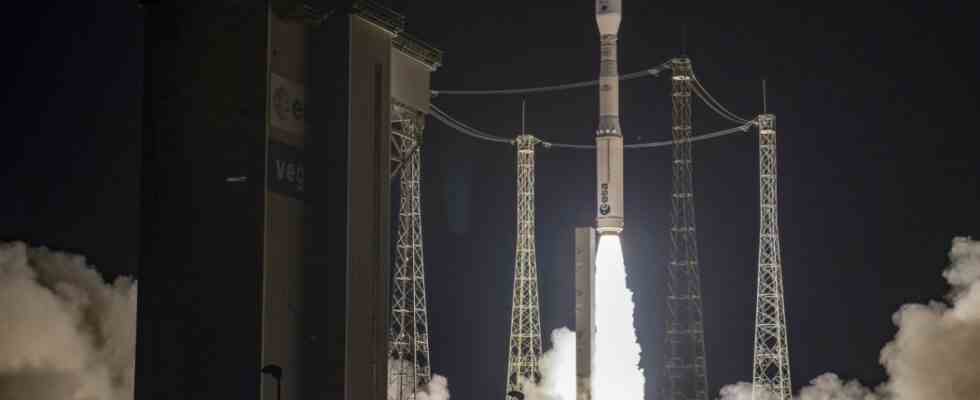The European space agency Esa was only able to launch the newly developed rocket in mid-July Vega-C celebrate. The launch vehicle’s little sister Ariane successfully placed several research satellites in earth orbit, and ESA director Daniel Neuenschwander wanted to herald a “new era of European launch solutions that Ariane 6 should be added”, as he said. Seven at least Vega-Flights were already booked at the time.
This project has now been abruptly interrupted. Ironically, on the first commercial mission of the Vega-C On Wednesday night, about two and a half minutes after takeoff from Kourou, French Guiana, there was a problem with the Zefiro 40 engine, which drives the third stage. Since the 35-meter rocket went off course, Stéphane Israël, head of the rocket operator Arianespace, had to admit the mission was lost. The exact reasons should be determined. On board were the earth observation satellites Pleiades Neo 5 and 6 of the Airbus Group. Airbus did not comment on this. Most recently it was in 2019 to a false start of the old ones Vega– Rocket came, also because of an engine problem. At a Vega-Mission In late 2020, two satellites were lost when the rocket deviated from the trajectory.
Fuel tanks come from Germany
The first Vegaversion had started twelve times since 2012 – including two failures. With the Vega-C Esa now has a rocket that is more powerful, more flexible and more competitive, since with a payload of 2.3 tons it can also transport around 800 kilograms more. Ten countries are involved, the main contractor is the Italian company Avio, and fuel tanks in particular come from Germany.
The successful first launch was good news, especially since the maiden flight of the Ariane 6 delayed by three years to the end of 2023. It was only in November that the launch service provider Arianespace announced five flights for the Copernicus Earth observation system, which is already 13 Vega-C-Starts are booked. If the launch that has now failed is due to a fundamental problem with the new rocket, it would be a major setback for Esa. The impact on the is unclear Ariane 6which also includes boosters of Vega-C are installed.

